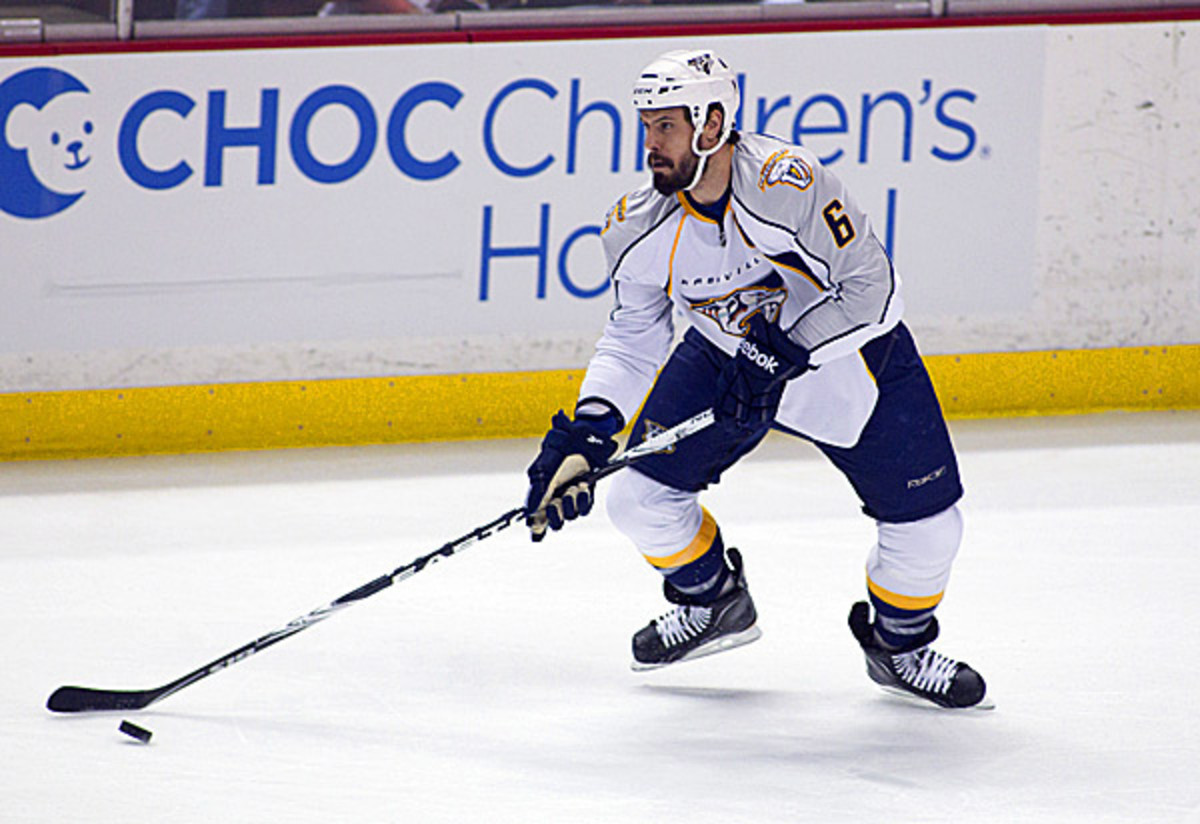Predators at a turning point with Weber

The Predators run a tight financial ship that Shea Weber's new deal could rock. (Paul Hebert/Icon SMI)

By Stu Hackel
What is going to happen to the Predators and Shea Weber? A salary arbitration ruling will be made in the next 48 hours and it should prove pivotal for Nashville.
First, the Preds and their outstanding blueliner were unable to negotiate a contract before their hearing Tuesday morning in Toronto. As we've noted earlier this summer, avoiding arbitration is the path that RFAs and their teams usually travel; it's not worth the risk of exposing themselves to the uncertainty of an arbitrator's decision and the potential hard feelings from the testimony about the player's perceived worth.
Why couldn't the Preds and Weber agree when so many others did? A few factors seem to be at play here. First, there are two other core members of the team who will be UFAs next season: goalie Pekka Rinne and Ryan Suter, Weber's defense partner. Nashville GM David Poile can't open the vault too wide for Weber, much as he might like, because he's got two more big contracts coming up and Weber's deal is going to be a benchmark for the organization's other stars.
That's especially true for Suter because while Weber gets a huge amount of attention for his play -- all of it deserved -- there are lots of observers who believe that Suter is every bit as important, perhaps even the more steady player. And some of those observers happen to be people in the Predators' organization. So, according to this thinking, Poile was essentially negotiating Suter's next contract while trying to get Weber signed.
Just what Weber was seeking can only be speculated upon.
He's coming off a deal that brought him $4.5 million annually, and The Toronto Star's Damien Cox pointed out today that two defensemen from Weber's draft class of 2003 are already raking in some big bucks. The Sharks just signed Brent Burns to a five-year, $28.5 million contract (cap hit $5.76 million) and the Maple Leafs are paying Dion Phaneuf $6 million annually. As Cox points out, "Weber is a superior player."
And so he is. The Preds' captain finished a very close second to Nick Lidstrom in the Norris Trophy balloting last season (and some believed Lidstrom's long, excellent reputation brought the margin of victory). Neither Phaneuf nor Burns was among the 20 players who received a first, second or third place vote. So, Suter's side may well argue, fair compensation starts above the $6 million range. Cox thinks the number starts a $6.5 million and could go as high as (gulp) $8 million. Blimey, that's Gary Bettman territory! (It's also Duncan Keith and Chris Pronger territory.)
Well, that's just what the arbitrator might award. Multiply that sum by two and give Rinne a healthy boost over the $3.4 million he'll make next season and the Predators could easily be looking at over $20 million for three players. That's a lot of money on a team like Nashville that doesn't historically spend to the cap, and that right now, pre-Suter, has the lowest payroll in the NHL. Poile certainly would like to keep all three players -- unless you buy the theory that he'd trade one of his stud blueliners for a sniper, as some have argued. What GM wouldn't want to preserve what could be the best defense tandem in the NHL?
How the arbitrator rules will have a lot to say about that because in this case, one stud's paycheck can easily produce a duplicate.
